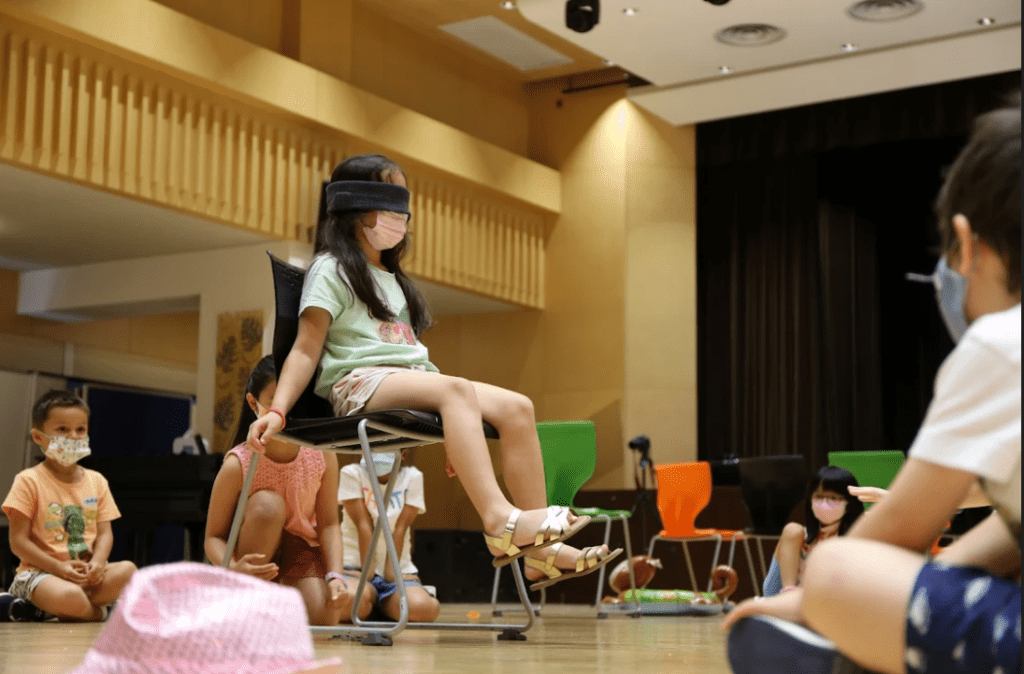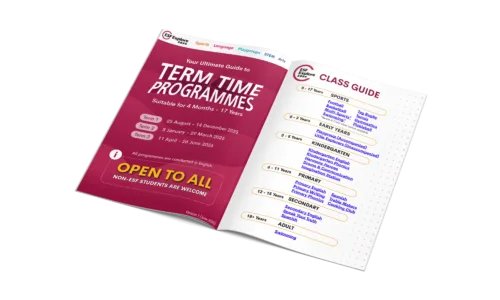
I’ve been working in schools in Hong Kong for 10 years and have rarely observed English teachers using drama techniques in the language classroom. Occasionally, teachers use role-play to reinforce language skills but more often than not drama in the classroom is avoided. One reason for this is that most language teachers haven’t been trained in drama and lack confidence in implementing it as a teaching strategy.
This is a shame as children love to play and drama is play…acting! More importantly, drama allows children the opportunities to communicate what they have learnt in the classroom with an emphasis on communication rather than getting grammatical correctness and fluency. What they don’t know they will use their bodies to communicate or non-verbal communication – just as we all do every day!
I enjoy using drama as it allows me to take a back seat. As a teacher I’m allowing students to take the lead and take more responsibility for their own learning. I recently taught a primary class on health and asking questions. I put students in groups of three and asked one to be the doctor and the others the patients. As a group, they had to first devise the questions the doctor needed to ask to come to a diagnosis. Then, if time allows, theyhad to act-out the scenario.
I say, ‘if time allows’ as it has taken me a while to understand that the process of creating a drama is arguably more important than the end product. The focus should not always be for the students to create a performance for others, but to create an experience for themselves by working through an issue or challenge. For example, in one lesson I use the story of ‘Snow White’ to explore the language attached to emotions. I asked the students to explore the feelings ‘Snow White’ felt towards her stepmotherand then I used the technique of ‘hot-seating’.
An example, of hot seating:

Participating in Drama, when taught as a subject in schools, builds a student’s self confidence, increases communication facility and makes working with others more productive. The very act of creating and performing quickly bonds a diverse group of individuals together in the pursuit of a common goal; the group becomes intensely motivated. Couple this motivation with a deliberate and consistent emphasis on target language use and you have a powerful teaching mechanism. The target language is picked up almost incidentally in activities necessary for the the completion of the larger goal.
It is my opinion that Drama is under utilised as a mechanism for language acquisition. In ten years of language teaching I have not seen another coherent language activity or syllabus which matches the use of Drama in terms of motivating students and for eliciting confident and un-selfconscious use of the target language.
By David Peatfield









